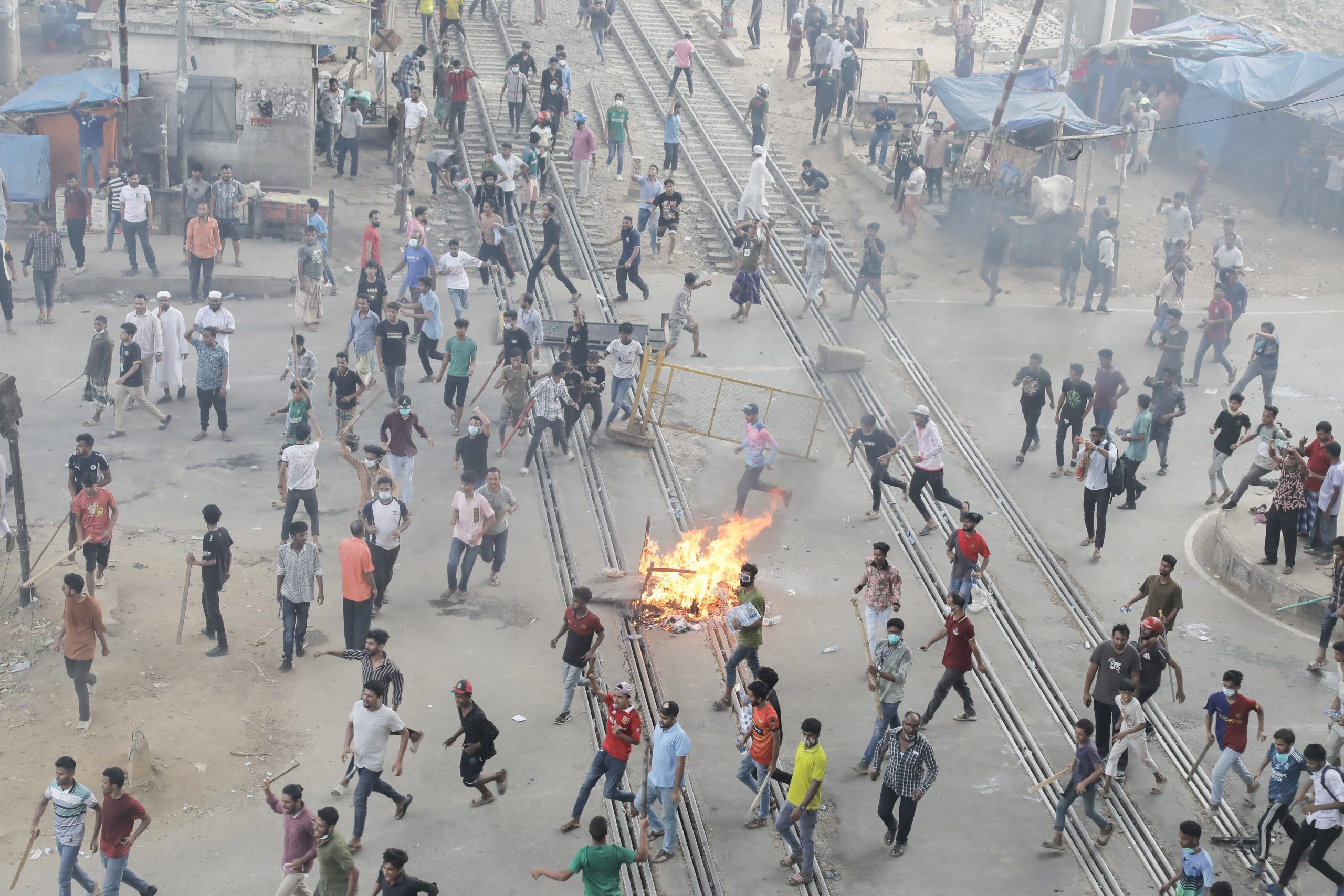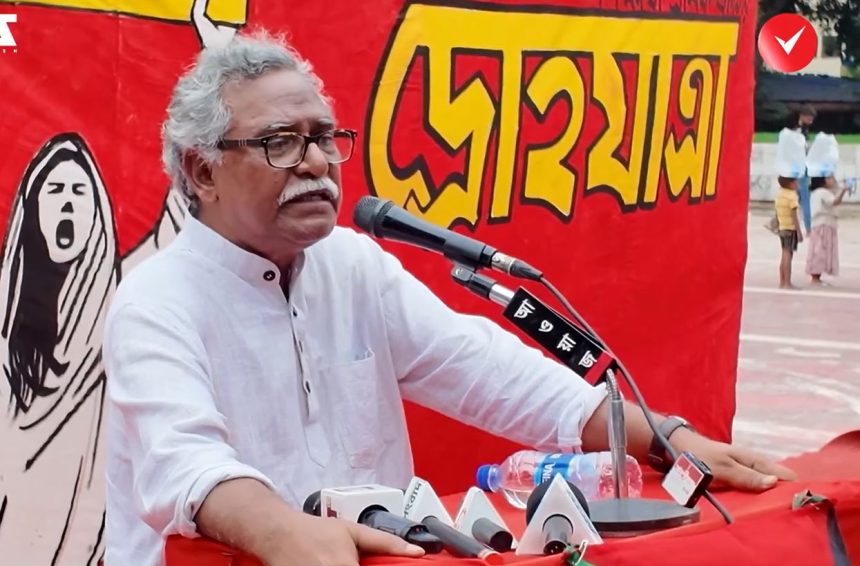Former Prime Minister Sheikh Hasina destroyed her own party, the Awami League, before fleeing to India following her ouster, economist and academic Professor Anu Muhammad has said in an exclusive interview with Times of Bangladesh.
“The foundations of destruction were laid inside the Awami League long ago,” Anu Muhammad said. “Hasina herself, as an autocrat, became the greatest liability for the party she led.”
Rot set in during Mujib’s era
Responding to a question about when the decline began for the 76-year-old party, Anu Muhammad pointed to the early post-independence years.
“The rot began between 1972 and 1975 during Sheikh Mujibur Rahman’s rule. He imposed one-man rule within the party, and the Awami League turned into a haven for looters, corrupt officials and criminals,” he said.
However, Mujib’s popularity and historic role in the liberation war gave him immense influence inside the party, which muted public dissent during his short tenure, he added.
Hasina turned party into autocratic machinery
The former Jahangirnagar University professor said Hasina’s uninterrupted 15-year rule turned the Awami League into a completely autocratic institution.
“Ministers had no real authority. Every decision came from the party chief. There was no internal democracy. Hasina became the ultimate symbol of the party’s internal collapse,” he said.
Anu Muhammad described the party during Hasina’s rule as one run by corrupt syndicates.
“Over the last 15 years, Awami League became a party of extortionists, commission-seekers, looters, and criminals. Despite claiming to uphold the spirit of the Liberation War, it had become a platform for a select group of profiteers,” he said.
He also alleged that the state under Hasina had handed over special privileges to business groups like Beximco, Summit, and Bashundhara, while the party lost its political essence and transformed into a corporate enterprise.

Grassroots corruption became institutional
Anu Muhammad further noted that corruption had become institutional even at the grassroots level of the party.
“No election was fair. The democratic process was totally absent. Party posts in Chhatra League, Jubo League, Krishak League and others — even at district and sub-district levels — were sold for millions of taka,” he claimed. “These positions were purchased for looting opportunities.”
No future under current leadership
Asked about the party’s future, Anu Muhammad said, “Awami League has no future under Hasina and her current leadership. If there are any true patriots and democrats left inside the party, they will no longer trust this leadership.”
He insisted that trials must be held for the killings, loot, corruption, and conspiracies committed under the party’s leadership.
“Only those not involved in such crimes, if they seek public apology and show genuine remorse for past actions, can try to reorganise the party. If people accept them, Awami League might one day return as a legitimate political force,” he said.

The fiery July, time of mass uprising.
Photo: Sadique Al Ashfaque./TIMES
Army-linked training and Indian connection
Regarding reports of party leaders receiving training under army supervision, he said such acts might be isolated but warned they could be used by disruptive forces.
“Such activities might be rejected even by India, despite being a traditional ally of Awami League. Any attempt to revive the party through militant or subversive means will face public resistance,” he said, urging the interim government and citizens to remain vigilant.
Fall of a regime, not just 36 days
Commenting on the so-called “36-day uprising” that toppled Hasina’s regime, Anu Muhammad said, “It wasn’t merely a 36-day revolt. It was the ultimate explosion of a long-built resistance against fascism.”
He traced the roots of the movement back to 2014, when Hasina extended her rule through a controversial election, followed by years of mega-scale corruption, vote rigging, oppression, and repression.
“The regime ruled as if it owned the country. Through lies, repression, black laws like the Digital Security Act, enforced disappearances, and arbitrary arrests, it turned into a brutal machine,” he said.
Anu Muhammad also pointed to the Rampal power plant protests, student road safety movement, leftist resistance, professional bodies’ discontent, and finally the anti-quota movement as milestones in this prolonged resistance.
“The ‘one-point movement’ that ultimately forced her out was the natural outcome of years of public struggle,” he said.


